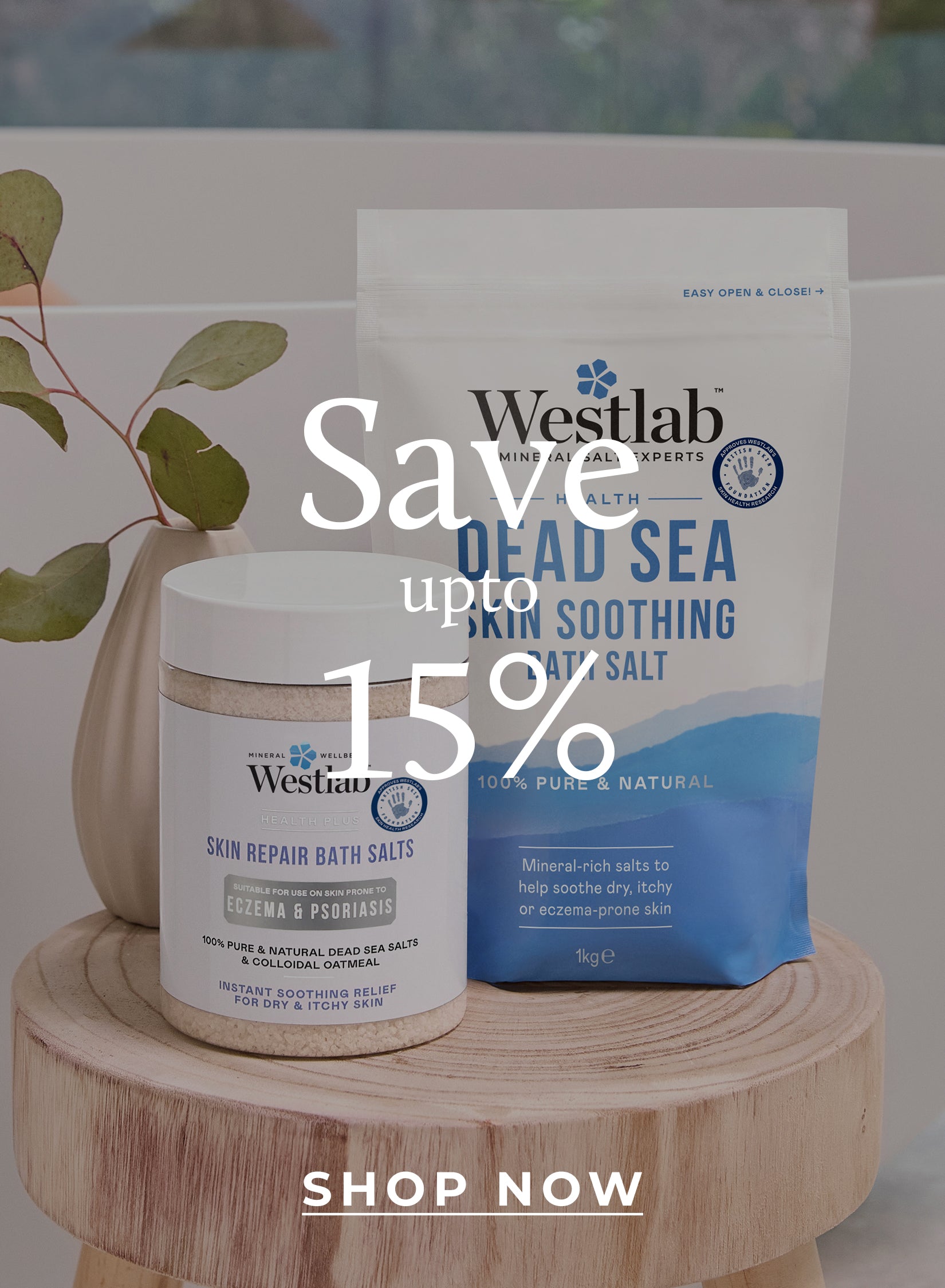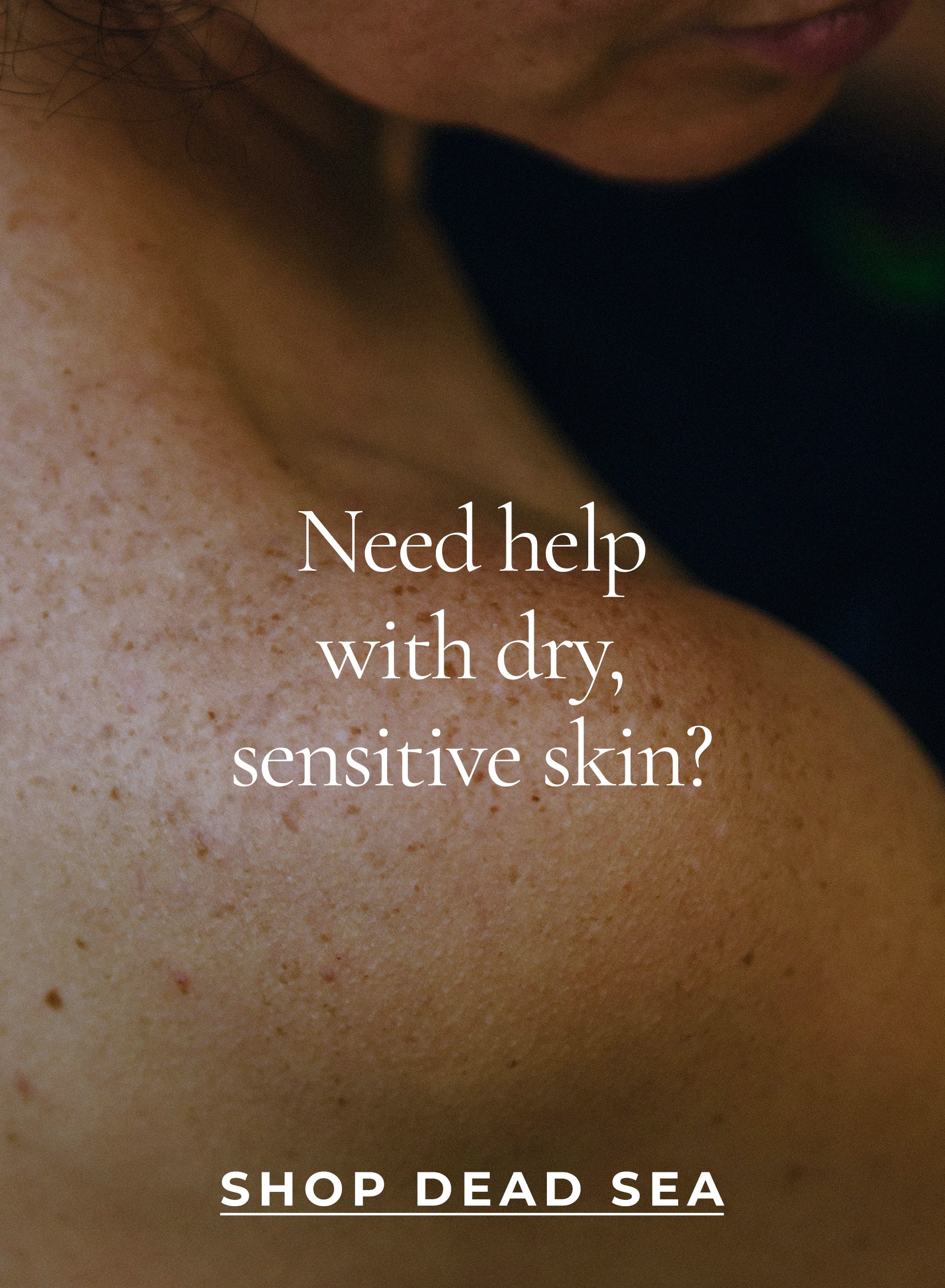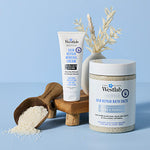Psoriasis flare up? Products you need to try

Psoriasis Flare-Up? Here Are 8 Skincare Products You Need To Try
With heightened stress levels and cold temperatures upon us – both triggers of psoriasis. British Vogue takes a look at exactly what the chronic skin condition is and how you can treat it.
What is psoriasis?
Around 1.1 million of us in the UK are affected by psoriasis. A chronic inflammatory skin condition caused by increased skin cell turnover. A typical skin cell cycle lasts three to four weeks. But in those with psoriasis, it can take as little as three to seven days. “This results in visible redness and scaling of the skin, commonly affecting the elbows, knees, buttocks and scalp,”. says Dr Anjali Mahto, consultant dermatologist at Skin55. These patches are often crusty and flakey and can appear anywhere on the body, from the scalp to the toes.
What does it look like?
There are different types of psoriasis, and varying degrees of severity. Although most suffer from a condition called plaque psoriasis; tell-tale signs include raised, red patches that can take on a silvery appearance, and may feel itchy and sore. Other types span from: inverse psoriasis. This is where patches of red skin (often in the breast, bum and groin areas) become more inflamed thanks to sweat and friction. Nail psoriasis. Think unusual nail growth and pitting. No type of psoriasis is contagious.
For some, psoriasis is found solely on the scalp and feels little more than dandruff. Others experience patches all over their bodies and can be quite debilitating. Both physically and mentally. As a guide, the USA’s National Psoriasis Foundation say that it’s mild if it covers less than three per cent of the body. Moderate at three to 10 per cent; and severe if it covers in excess of 10 per cent.
What is the main cause?
As with many chronic skin issues – eczema included – the exact cause of psoriasis is not wholly understood. However, it relates to immune system function. Namely, its response to external aggressors, like infection and pollution. These prompt the attacking of healthy skin cells, and cause subsequent build up on the skin. Genetics play a big part. If one of your family members has it, chances are you might too.
Of course, there are other reasons for psoriasis flare-ups, and many of them are a common part of everyday life: “Stress is not a cause of the disease, but it can be a trigger in those who have an underlying tendency towards development of the condition,” says Mahto. Other triggers for a flare-up include cold, dry weather conditions, smoking, alcohol, any injury to the skin and certain medications. Often diagnosed before the age of 35, it can also strike after that, and it’s a condition that moves to the beat of its own drum, flaring up and settling itself in a cyclical fashion.
Can psoriasis be cured?
“Psoriasis is considered a chronic condition meaning it can be controlled but not really cured,”. says Mahto. “For many people, the condition can come and go over the years.” The good news is that, aside from minimising stress and other external triggers like alcohol consumption, there are a number of different treatments that can help to ease it. “Depending on the extent and severity of the condition, as well as taking into account other medical problems, options include prescription creams [like vitamin D analogues or topical corticosteroids], prescribed light treatments (phytotherapy), tablets which suppress the immune system to reduce inflammation, and injections,” says Mahto.
It’s also well worth incorporating a probiotic supplement into your diet. A healthy and robust gut, populated with lots of good bacteria. This can help support the immune system in functioning well. Since psoriasis is an autoimmune disease, it makes sense to focus some attention on a gut-friendly diet to help reduce flare-ups. Minimise sugar and processed food intake and take a shot of Symprove’s probiotic drink every morning as a good starting point.
When it comes to skincare, look to hydrating formulas that can help soothe and soften the dry and flaky patches – when winter strikes and the weather gets colder, these often get worse. “Use moisturisers to alleviate dry skin and look for ingredients like glycerin, petrolatum, shea butter and ceramides. They all prevent further water loss from the skin’s surface and soothe patches of dry skin,” says Mahto.



















